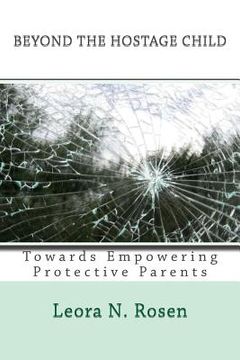Synopsis "Beyond the Hostage Child: Towards Empowering Protective Parents (in English)"
In the 1980s as improvements in outreach and education on child sexual abuse brought an increase in reported cases, many mothers who believed their children's allegations of incest, and who attempted to protect them from the alleged perpetrator, found themselves at odds with the historically patriarchal family court system. These mothers were disbelieved, discredited, and frequently punished with loss of custody and even visitation. Later, they were joined by domestic violence survivors, empowered to leave their abusers by the 1994 Violence Against Women Act (VAWA), but who found that they too were losing custody of their children in family court. Many advocacy groups have sprung up to address the problem, and there is a growing literature about the harmful contributions not only of judges, but also custody evaluators, mediators, guardians ad litem, child protective service workers and other court auxiliaries. Yet the only change over the past 30 years has been the increased sophistication and efficiency of the mechanisms developed by family courts to punish protective mothers. The question has arisen as to why the battered women's movement has not been more vocal in supporting protective mothers and has not devoted more of its resources towards assisting them. There are several possibilities. First, from the beginning, the battered women's movement has had an ambivalent attitude towards children, and although this has softened over time, it still remains a factor. Second, despite awareness that battering has many facets besides physical violence, and that coercive control is at its core, the battered women's movement still tends to view battering as predominantly physical violence. Related to this is the fact that the focus of VAWA is on criminal justice solutions to battering, whereas coercive control -- considered by experts to represent the essence of battering -- includes acts that may not be defined as crimes. Third, even among battered women's advocates who have tried to increase public and professional awareness of coercive control concerning adults, very few have considered children as its potential targets, especially in the case of incest, which is still viewed by most people simply as child sexual abuse, best dealt with by child protective service agencies. Finally, since the battered women's movement is firmly located under the banner of law and order, it is hard pressed to admit that family courts, which represent the law, are being used as instruments of coercive control, and may be engaging in tortious and even illegal acts, not to mention civil rights violations. Beyond the Hostage Child tracks the historical forces that have shaped the protective parents movement, provides the latest scientific research relevant to the subject, and summarize ideas for change that have been proposed by key advocates and professionals. In particular, the book pays close attention to the role of the unregulated divorce industry that exploits vulnerable families for profit, and also discusses the influence of federally funded fatherhood programs that promote access of unwed or divorced fathers to their children with scant attention to the dangers of domestic violence in all its forms. Most importantly, the book addresses the civil rights violations that routinely occur in family court and attempts to explain why the U.S. Supreme Court has failed to recognize these violations in two landmark decisions. Finally, Beyond the Hostage Child advocates for recognition of the protective parents movement as distinct from the battered women's movement and calls for the establishment of an Office on Domestic Violence Against Children within the Department of Justice. This office would set standards for best practices and policies, educate, and coordinate activities with other federal as well as state agencies, collect data, support civil rights actions, and even manage grants to states for improved practices.

